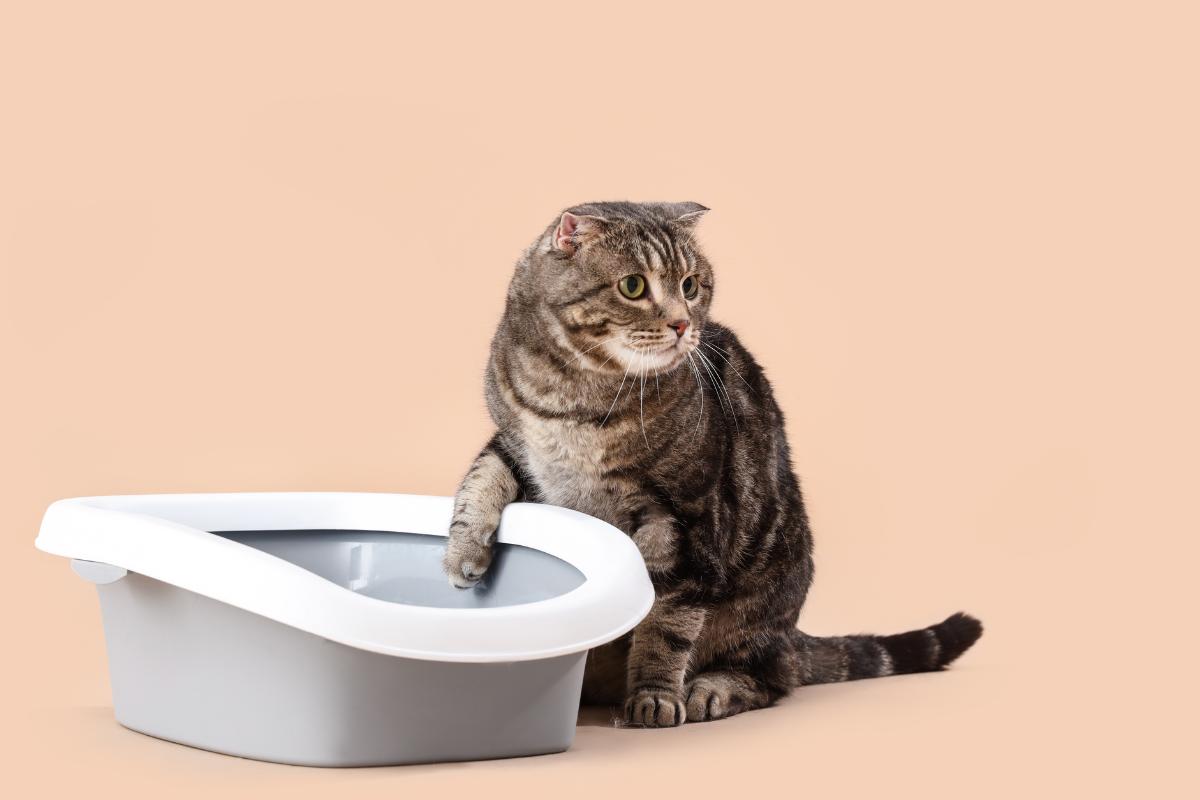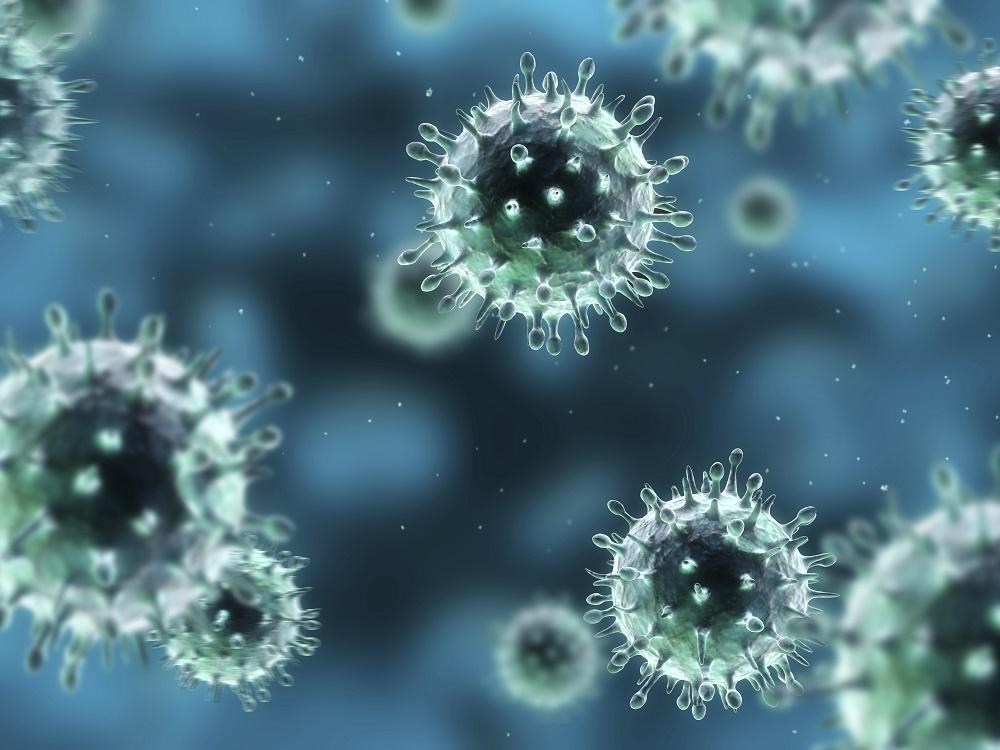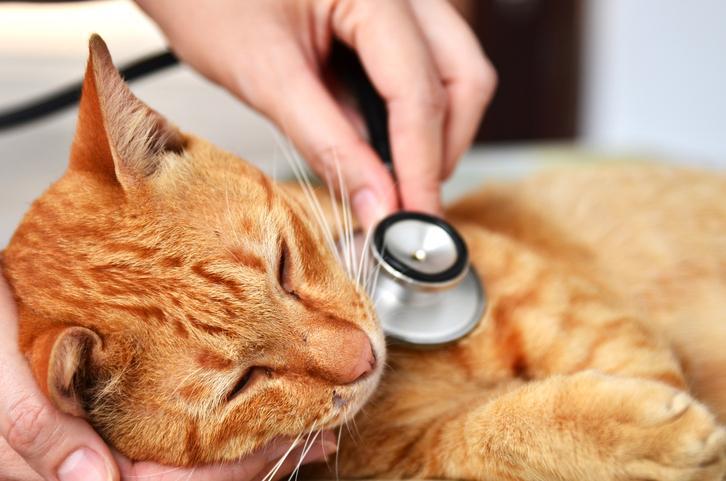Does Your Cat Have Colitis?

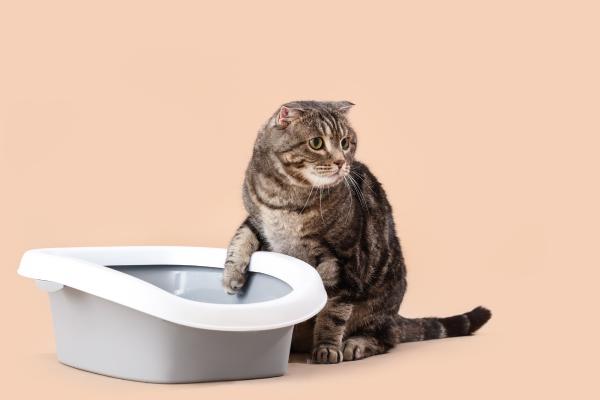

See files for Cats
Is your cat suddenly having diarrhea or acting uncomfortable? It might be colitis, a common digestive issue that affects a cat’s colon. While it can be worrying, the good news is that colitis in cats is usually treatable once you understand the symptoms, causes, and care options.
In this AnimalWised article, we’ll explain what colitis in cats is, what to look for, how to help your cat feel better, and when it’s time to see the vet.
What is colitis in cats?
Colitis in cats is simply inflammation of the colon, the last part of your cat's digestive tract. This inflammation disrupts the colon's normal job of absorbing water and storing waste, which is why diarrhea is often the first sign something's wrong.
Cats can experience two main types of colitis.
- Acute colitis: comes on suddenly and often resolves within a few days with proper treatment. It's typically triggered by something specific like a dietary indiscretion, stress, or a brief infection.
- Chronic colitis: persists for weeks or months, sometimes coming and going in frustrating cycles. It usually indicates an ongoing issue like food allergies, inflammatory bowel disease, or parasitic infections.
The colon plays a crucial role in your cat's health. It's responsible for the final stages of digestion, absorbing water and electrolytes while forming and storing stool until elimination. When inflamed, it can't perform these functions properly, leading to uncomfortable symptoms for your cat.
Surprisingly, colon inflammation in cats is much more common than most cat owners realize. Many cases of "occasional diarrhea" that cat parents dismiss as normal are actually mild episodes of colitis that could benefit from veterinary attention. Even indoor cats with carefully monitored diets can develop this condition.
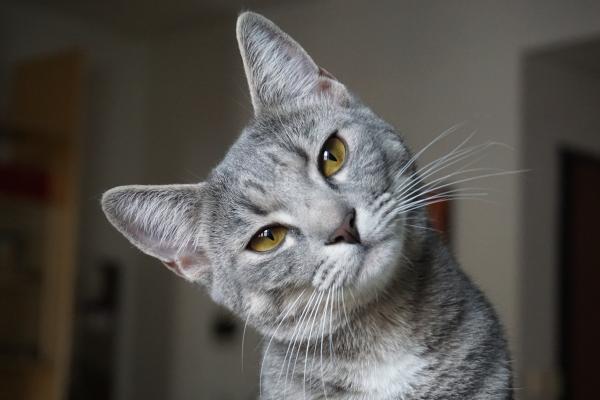
Symptoms of colitis in cats
Colitis in cats refers to inflammation of the colon (large intestine) that disrupts normal bowel function. When your cat develops colitis, several characteristic symptoms typically appear that you should watch for.
Stool changes are usually the first noticeable sign. Affected cats produce frequent, bulky stools that lack proper form and appear pasty, though often maintain normal coloration. These stools frequently contain whitish mucus, and in more severe cases, fresh blood. The presence of blood generally indicates either parasitic infection or significant irritation of the intestinal mucosa.
Cats with colitis make frequent trips to the litter box, often adopting the typical defecation position even if they ultimately fail to produce stool. This behavior stems from tenesmus, which is a persistent sensation of incomplete evacuation that causes the cat to remain in position long after attempting to defecate. This urgency sometimes results in accidents near but not in the litter box when the cat cannot reach it in time.
The excessive defecation attempts (often 2-3 times the cat's normal frequency) lead to anal irritation, known medically as proctitis. This irritation worsens when cats repeatedly lick the area to clean fecal residue, creating a cycle of increasing discomfort.
Beyond these primary symptoms, cats with colitis often show digestive distress in other ways. Vomiting may occur, particularly in cases where inflammation extends beyond the colon. Increased flatulence is common as the normal gut bacterial balance becomes disrupted.
Abdominal discomfort manifests through behavioral changes such as:
- A hunched posture when sitting or walking.
- Sensitivity when touched around the belly.
- Restlessness as the cat struggles to find a comfortable position.
As colitis progresses, cats typically become lethargic with noticeably reduced activity levels. Some cats vocalize more frequently when experiencing discomfort.
Worried about unusual colors in your cat's stool? Our veterinary-reviewed guide helps you understand when it's time to call the vet.
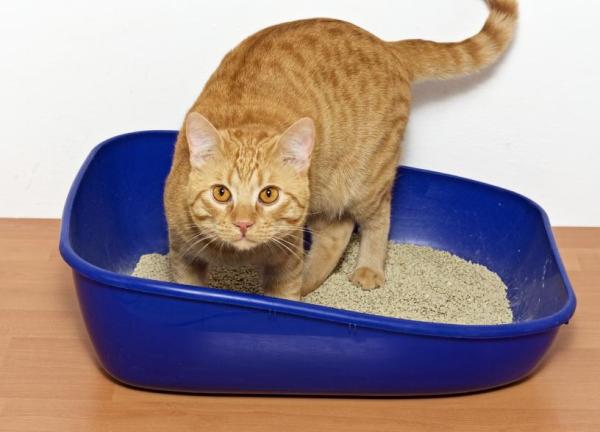
What causes colitis in cats?
Parasitic infections:
Intestinal parasites frequently trigger colitis in cats through direct damage to the intestinal lining and inflammatory responses. These organisms represent one of the most common causes of colonic inflammation in domestic cats:
- Giardia lamblia: this common protozoan causes intermittent diarrhea with mucus and occasionally blood. Affected cats typically produce distinctive frothy, greasy stools with a characteristic unpleasant odor. Giardia is highly contagious between cats through fecal-oral transmission, making it problematic in multi-cat households.
- Tritrichomonas foetus: is a significant pathogen causing persistent large-bowel diarrhea with jelly-like mucus. This parasite thrives in multi-cat environments like shelters and catteries. This parasite proves particularly challenging to eliminate completely, with relapses common even after treatment.
- Isospora species (Coccidia): it typically produces watery, high-volume diarrhea with a distinctive odor. While it affects cats of all ages, kittens and immunocompromised adults suffer the most severe symptoms. The infection responds well to specific anticoccidial medications.
- Trichuris (Whipworms): these parasites embed in the intestinal wall, producing chronic, intermittent diarrhea that sometimes contains fresh blood. The eggs demonstrate remarkable environmental persistence, surviving for years in soil.
Parasitic colitis presents several diagnostic challenges for veterinarians. The intermittent shedding patterns of many parasites necessitate multiple fecal samples collected over several days. Standard diagnostic techniques may miss certain organisms like T. foetus, requiring more specialized testing approaches. Cats often harbor multiple parasitic species simultaneously, complicating the clinical picture.
Diet-related colitis:
Diet plays a crucial role in both causing and managing feline colitis. Food allergies and intolerances represent a significant trigger for colonic inflammation in cats. Many cats develop sensitivities to specific protein sources they've consumed for extended periods, with common culprits including beef, fish, chicken, and dairy products. These allergies trigger immune responses in the intestinal tract, leading to inflammation and characteristic diarrhea.
Dietary indiscretion occurs when cats consumce inappropriate foods, garbage, or foreign materials. Indoor-outdoor cats may hunt and consume prey animals or scavenge potentially spoiled food, while indoor cats might ingest houseplants, small objects, or human foods unsuitable for feline consumption. These inappropriate items can directly irritate the colon or disrupt normal digestive processes.
Sudden diet changes represent another common trigger for colitis episodes. The feline digestive system relies on a stable microbial ecosystem, and abrupt food transitions can significantly disrupt this delicate balance. This disruption allows opportunistic bacteria to proliferate while beneficial populations decline, often resulting in diarrhea and inflammation.
Gradual transitions between foods over 7-10 days help prevent such disruptions.
Infectious colitis:
Beyond parasitic infections, several other infectious agents commonly trigger colitis in cats. Bacterial pathogens represent important causes, with Salmonella species, Campylobacter jejuni, Clostridium perfringens, and pathogenic strains of Escherichia coli frequently implicated in feline intestinal disease. These bacteria can be acquired through contaminated food, water, or environments, or may proliferate opportunistically when normal gut flora becomes disrupted.
Viral infections affecting the gastrointestinal tract can also cause colitis.
- Feline panleukopenia virus (FPV) produces severe, often bloody diarrhea through direct damage to rapidly dividing intestinal cells.
- Feline enteric coronavirus (FECV) typically causes mild to moderate diarrhea in cats, though in rare cases it may mutate into the more serious feline infectious peritonitis virus.
- Other viruses occasionally involved include calicivirus and astrovirus.
Did you know that many colitis cases in cats are triggered by what's in their food bowl? Discover the ingredients most likely to cause problems in our companion guide.
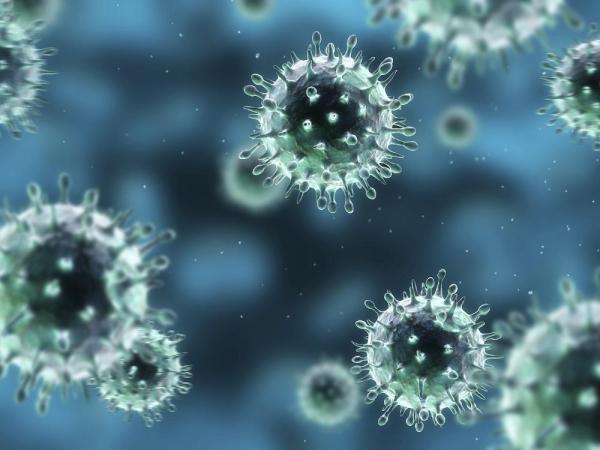
IBD in cats isn't just your average tummy trouble. It's a complicated digestive disorder where the intestinal tract becomes chronically inflamed. What makes IBD different from a simple upset stomach is that your cat's immune system starts overreacting to normal stuff in the digestive system, creating ongoing inflammation that damages the intestinal tissues.
Several things work together to cause feline IBD. Some cats are simply born more likely to get it. Siamese cats and their relatives seem especially prone to developing this condition. What happens is the intestinal barrier weakens, allowing substances that should stay in the gut to leak out and interact with immune cells, triggering inflammation. On top of that, the good bacteria in your cat's digestive system get thrown out of balance, which only makes the inflammation worse.
This creates a frustrating cycle because inflammation damages the gut lining, which lets more irritating substances seep into the tissues, which causes more inflammation. This self-feeding process is why IBD needs ongoing management.
While IBD usually isn't something that can be completely cured, the good news is that most cats with properly managed IBD can still live happy, comfortable lives with the right veterinary care.
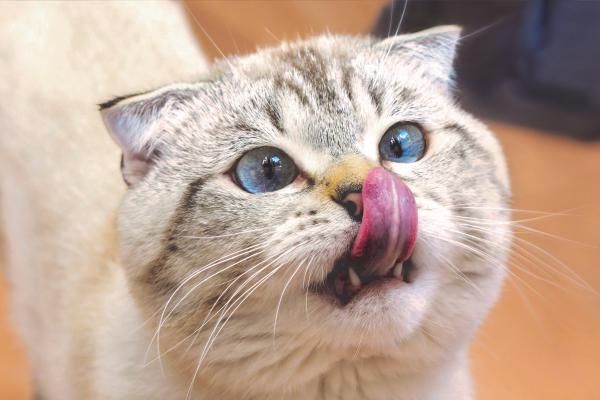
How vets diagnose cat colitis
When your cat has ongoing diarrhea, your vet needs to figure out if colitis is the culprit. The diagnostic journey typically starts with a thorough physical exam. Your vet will feel your cat's abdomen and check for tenderness, pain, or abnormal masses.
Stool samples are crucial evidence. They reveal parasites, blood, mucus, or bacteria that shouldn't be there. Your vet might request multiple samples to catch intermittent problems. Also, blood tests help rule out other conditions and check for inflammation markers. Elevated white blood cell counts often signal inflammation somewhere in the body.
If the diagnosis isn't clear, imaging comes next. X-rays can spot obvious blockages or abnormalities, while ultrasounds provide a more detailed look at the intestinal walls and surrounding organs.
In stubborn cases, your vet might recommend a colonoscopy. This allows them to visualize the colon directly and take tissue samples for biopsy—the gold standard for confirming colitis and identifying its specific type.
Getting the right diagnosis is critical before starting treatment. What looks like colitis could actually be irritable bowel disease, food allergies, or infections, and all require different approaches. A proper diagnosis ensures your cat gets the right treatment from the start, saving time, money, and your cat's comfort.
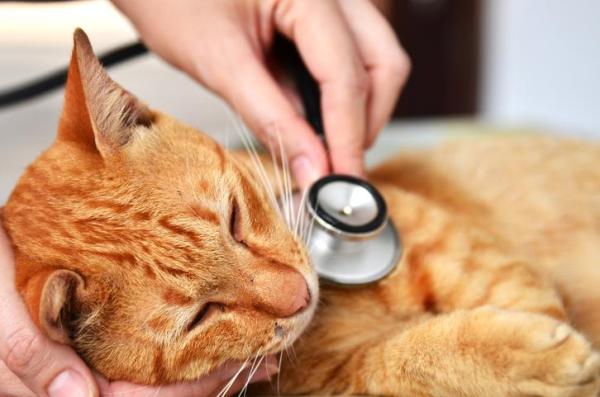
Treatment options for colitis in cats
When your cat has been diagnosed with colitis, there's good news. Several effective treatment approaches can help your furry friend feel better. The right treatment plan depends on what's causing the inflammation in the first place.
Dietary changes:
Diet modification is often the first line of defense. Many cats respond well to low-fat foods that are easier on the digestive system and higher fiber content to regulate bowel movements. Hypoallergenic diets that eliminate common triggers or novel protein sources your cat hasn't eaten before can also make a significant difference. Your vet might recommend a prescription diet specifically formulated for digestive issues.
Probiotics and supplements:
Probiotics can restore healthy gut bacteria that help combat inflammation. These beneficial microorganisms may be given as supplements or found in certain prescription foods. Fish oil supplements containing omega-3 fatty acids might also be recommended to reduce inflammation naturally.
Medications:
Depending on the cause, your vet might prescribe antibiotics if bacterial infections are involved or anti-inflammatory drugs to reduce colon irritation. If parasites are the culprit, dewormers will be necessary. For symptom relief, anti-diarrheal medications might be prescribed, and in severe or chronic cases, immunosuppressants may be needed.
Hydration:
Cats with colitis often become dehydrated due to diarrhea. Your vet might recommend subcutaneous fluids administered at home, adding water fountains to encourage drinking, or switching to wet food to increase moisture intake. In severe cases, temporary IV fluids at the clinic might be necessary.
Most cats start showing improvement within a few days of treatment, though complete resolution can take weeks. During recovery, feed small, frequent meals to prevent overwhelming the digestive system and ensure clean, fresh water is always available. It's important to maintain a stress-free environment, as anxiety can trigger flare-ups. Keep litter boxes exceptionally clean to monitor stool consistency.
Noticed your cat's ribs becoming more prominent despite regular meals? Discover the potential health issues behind this concerning symptom in our other article.
This article is purely informative. AnimalWised does not have the authority to prescribe any veterinary treatment or create a diagnosis. We invite you to take your pet to the veterinarian if they are suffering from any condition or pain.
If you want to read similar articles to Does Your Cat Have Colitis?, we recommend you visit our Intestinal problems category.
- Barr, S. C., Bowman, D. D., & Heller, R. L. (1994). Efficacy of fenbendazole against giardiasis in dogs. American Journal of Veterinary Research, 55(7), 988-990. https://pubmed.ncbi.nlm.nih.gov/6863613/
- Hoskins, J. D. (2004). Diagnosis and management of colitis in dogs and cats. Veterinary Information Network. https://www.vin.com/apputil/content/defaultadv1.aspx?id=7054646&pid=12886
- Washabau, R. J. (2010). Dietary modification in small animal gastroenterology. Veterinary Information Network. https://www.vin.com/apputil/content/defaultadv1.aspx?id=4516240&pid=11310





